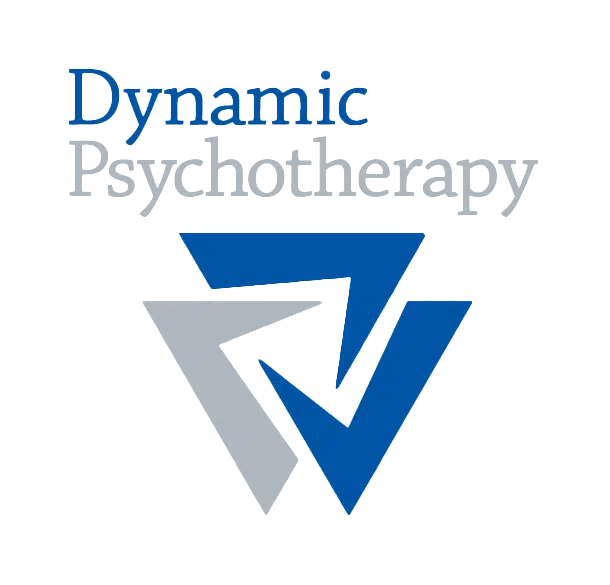In this post from provisional psychologist Jesse Muscatello, he reflects on psychology in sport, through the lens of his personal experience.
Growing up, my ability to play well in Australian Rules Football became a significant part of my sense of self. On the field, hitting a target or taking a mark early could build my confidence, but a skill error could quickly diminish it, making it increasingly difficult to focus and attend to the next situation as I imagined the potential criticism from my coach in player reviews. If I played a good game of footy, I would feel good about myself. If I didn’t play so well, it felt as if my brain had compiled a tape of every error or alternative decision I should have made, playing it over and over until the next game. The more I progressed through representative and development teams in football, the more I struggled with performance anxiety and low mood. Playing at the highest level I could, in what is now known as Coates League and then moving to Coburg VFL, I felt like an anxious wreck, wishing for the game to be over before it started. I welcomed injuries as an excuse to avoid the distress of the experience. However, I also noticed that when I was eventually dropped to play at lower levels of whatever team I had signed with, I became a different player. With lower stakes, my confidence and performance improved. The skill errors that plagued me at higher levels no longer were as present in my game, my anxiety was lower, and my sense of self improved as I accumulated more possessions, executed more effective disposals, ran harder, and felt like a completely different player. This contrast in my game was frustrating. Why couldn’t I play like this when it mattered?
I engaged in various cognitive and behavioural skills to address my anxiety and performance, working with coaches and my own psychologist throughout my time playing. I tried implementing mindfulness techniques to stay present, practiced my skills and running outside of training, and tried to observe and notice my thoughts during a game to defuse them. But I continued to face the same problems, I was battling against myself. As I moved away from my pursuit of an AFL career, my fascination with psychology and self-understanding did not subside. I pursued further learning, eventually discovering something that was underlying my self-defeating thoughts and behaviours, that perpetuated my depressive and anxiety related symptoms. Through both my studies and own therapy, I began to confront my own dynamic unconscious.
What is that, you may be wondering? Well, conscious processes involve thoughts, feelings, and perceptions that are within our conscious awareness. These include things we are actively thinking about, decisions we make deliberately, and emotions we recognise and understand. On the other hand, unconscious processes are those that occur without our awareness. These include deep-seated desires, fears, motivations, and habits that influence our behaviour and reactions, but we are not actively aware of them. The dynamic aspect of this is the way that our conscious and unconscious work together to construct our experience.
The unconscious mind is a repository of instinctual drives, repressed experiences, past traumas, unresolved conflicts, and fundamental desires (Ginot, 2017). In sport and high-performance, these elements can significantly influence an athlete’s behaviour and performance, often outside of their awareness. For example, an athlete may unconsciously associate the pressure of a big game with a fear of failure rooted in past experiences, leading to performance anxiety or even “choking“ at a critical moment (Merced, 2019). What makes high-pressure situations different; how people think and react in these situations, and how intense focus can sometimes cause too much distraction or make athletes overthink their skills can lead to mistakes and/or overfocus on performing perfectly, which can all cause problems (Christensen et al., 2015).
Beyond performance, the occurrence of mental health symptoms and disorders is highly prevalent amongst high-performance athletes and non-athletes (Henriksen et al., 2020), with psychological distress a critical aspect that needs to be considered regardless of those who may otherwise appear to be well-functioning (Purcell et al., 2020). In Australia, depression, eating disorders, general psychological distress, social anxiety, generalized anxiety disorder, and panic disorder are common mental health issues among athletes (Gulliver et al., 2015; Purcell et al., 2019). Additionally, injuries are considered to intensify distress across this population (Purcell et al., 2019). This can be linked to constructs such as perfectionism, placing athletes at high risk of burn out from accumulative stress (McLoughlin et al., 2022; Yang et al., 2023).
When unconscious material risks something important in the athlete’s external world, such as their reputation or career, it can create anxiety. This anxiety often remains unconscious, meaning the athlete might not fully understand why they feel anxious. In response, they develop defences, both against the anxiety itself and the underlying emotions causing it. These defences can manifest in various ways, such as avoidance, overtraining, or mental blocks, which can hinder performance in sports. Thus, the interplay between these unconscious internal experiences and external pressures can significantly impact an athlete’s psychological state and performance.
In the field of sport psychology, the need to address the dynamic unconscious with high-performance athletes is an emerging area of critical importance. Dr. Tom Ferraro, a psychoanalyst, sport psychologist, and author, advocates for this in his book ‘Unpacking Depth Sport Psychology: Case Studies in the Unconscious (2023). He describes that throughout his 25 years’ worth of experience working with professional teams, coaches and Olympic athletes across a broad range of sports, he found that behaviour modification was only effective in relieving some of the patients symptoms with no guarantee that they would not return. In the face of intense competitive pressure, psychodynamic work is considered to be among the best placed to offer the widest array of interventions that are robust enough to manage an athlete’s extreme stress.
Using myself as a case example, here are potential internal conflicts that psychotherapy might be able to help me with:
- Fear of Success: On an unconscious level, success might be associated with increased pressure, responsibility, and exposure to scrutiny. I might unconsciously fear the changes that success would bring to my life, such as a loss of privacy, heightened expectations, and the potential for future failures to be more public and therefore more humiliating.
- Fear of Failure: Paradoxically, a fear of failure can lead to self-sabotaging behaviour. This fear can be so overwhelming that the unconscious processes work to ensure failure, as this is seen as less threatening than the possibility of success followed by a fall from grace.
- Unresolved Conflict: I might have unresolved conflicts, perhaps from past experiences and relationships where success was not an intrinsic drive but an extrinsic internalisation, or where failure was somehow rewarded or relieved tension in my life. This may have explained a manifestation in my injuries, speaking to a physiological reaction to my desire to avoid failure.
- Self-Punishment: I might have an unconscious belief that I do not deserve success, which can be rooted in deep-seated feelings of inadequacy or guilt. Choking, therefore, becomes a form of self-punishment.
- Preservation of Self-Identity: If my self-identity is tied to struggling or being the underdog, succeeding conflicts with this identity. The unconscious mind might lead me to choke, thereby preserving what is familiar rather than the uncertainty of performing consistently at a high level.
- Control: Paradoxically, choking can be an unconscious attempt to maintain control. The uncertainty of the outcome of success can be more anxiety-provoking than the certainty of self-induced failure.
The problem with applying manualised evidence-based interventions in high-performance settings is that they risk oversimplifying the nuanced and unique experience of the individual. By exploring the function of anxiety and defences for the athlete rather than focusing on it as a symptom to be treated in isolation, we can build tolerance and work to understand what the anxiety signals to the individual. This might relate to potential losses if the athlete performs well. We might query aspects such as how does the athlete tolerate feelings of anger, aggression, shame, depression, guilt, envy, competition, autonomy, or achievement? How do they cope with or avoid their internal conflicts? How do these arise with people involved in their performance, and how does the athlete assert an adaptive sense of self? How does pain and injury operate for the individual? These are all important questions that can unfold within the therapeutic relationship of psychodynamic psychotherapy.
Before applying techniques and skills, we must first identify the problem. Not what is a problem for someone else, but what is the problem for the individual seeking help. This is a transitory and continually updated process. We often don’t know why we continue to engage in the same patterns of problematic behaviour, even when we have the intellectual understanding of how problematic it is. Thus, an experiential and emotional element is necessary to integrate the parts of ourselves we have lost connection with; and doing so in the safety and trust of a therapeutic relationship. Psychodynamic approaches are therefore of great value in helping to address the complexity of high-performance individuals, increasing capacity, and working towards transitioning psychological distress into psychological flourishing.

